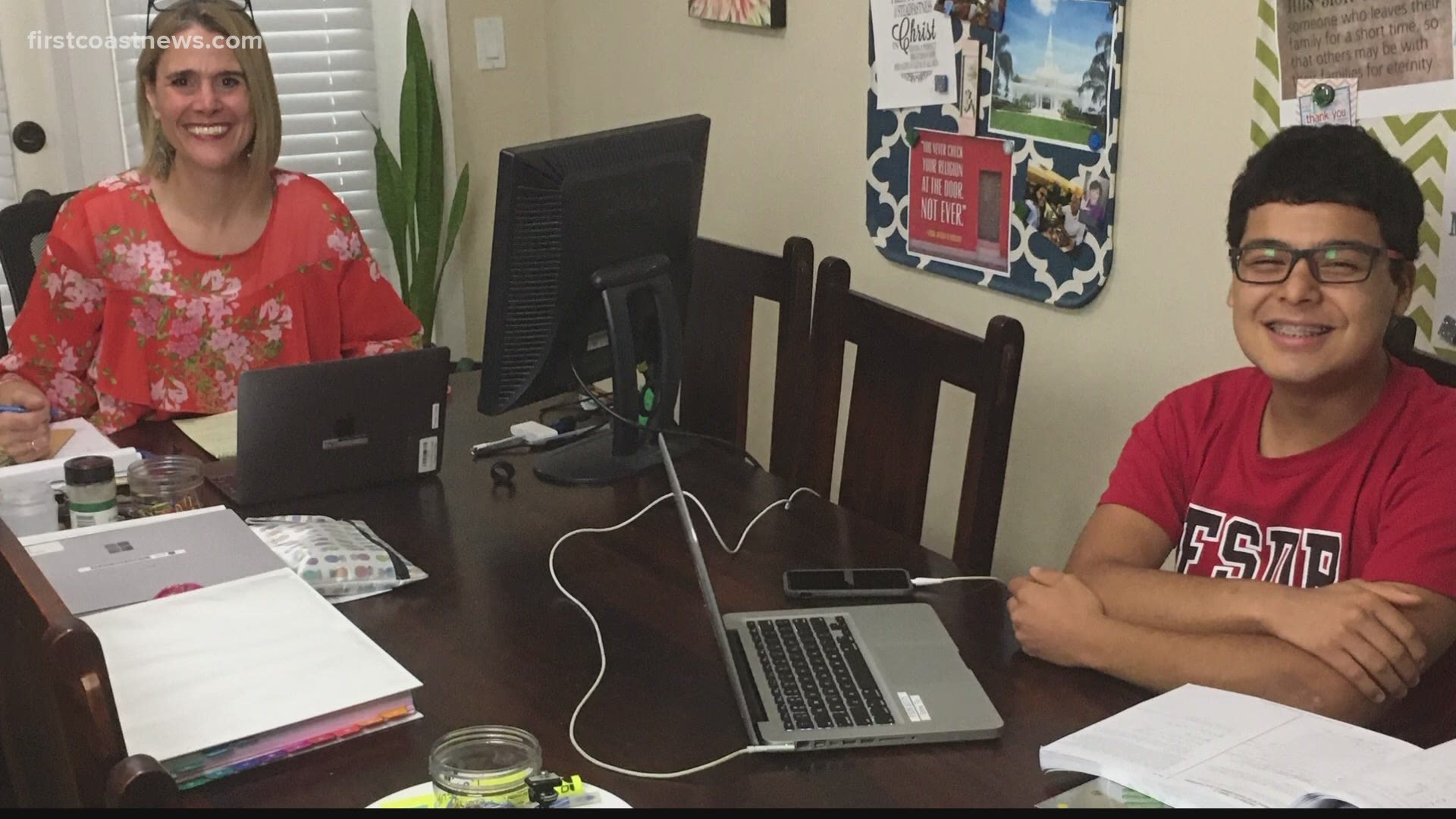ST. AUGUSTINE, Fla. — Schools across the country are figuring out how to still teach children from afar during this pandemic, but imagine if your students cannot hear or cannot see?
The Florida School for the Deaf and the Blind (FSDB) is making sure its students get the lessons they need.
Noah Hoffnagle is in kindergarten and his brother, Joshua, is in sixth grade. They both attend the FSDB in St. Augustine.
"Both of our boys are profoundly deaf," Jamie Hoffnagle, their mom, said.
She and her husband, Jason Hoffnagle, are getting a real education about distance learning with their five sons at home now.
Five-hundred-fifty-eight students from across the state attend the FSDB.
It's a place that may have even more challenges than other public schools when it comes to distance learning just because of its students' special needs.
"We knew this was going to be an amazing learning curve for everyone involved," Tracie Snow said. She is the Administrator of Instructional Services at FSDB.
She said the school sends instructional materials -- braille or paper-based -- to students every week.
"We also sent home devices, computers, iPads, and assistive technology," she added.
For blind students, children are working with refreshable braille devices, according to Snow.
The devices "hook up to their computers, and the braille comes through on their refreshable keypad that they have," Snow explained.
For deaf students, videos of the lessons are key. As businesses and schools have discovered in the last month or so, there are many video conferencing platforms now.
"And signs, [as in sign language] are captured beautifully on those platforms," FSDB President Jeanne Prickett said.
"Our deaf students receive a video of everything they’re learning, and I think that’s the difference between our hearing children who get more written work," Jamie Hoffnagle said.
Jason Hoffnagle said when his child was in a classroom, before the pandemic, "The kindergarten teacher gave the day, the week, the month and the weather at the start of the class. Now, she sends first thing in the morning, a video every day. And she's signing it all. She's essentially videoing the morning meeting they would have every day."
Snow is not just the school’s instructional administrator, her deaf son is also a student at the school.
She and he now sit at the long dining room table. She works at one end. He goes to school at the other end.
Snow said, "It’s a wonderful opportunity to learn empowerment and self-reliance." She gave an example, "He’ll get stuck and I tell him, 'Email your teacher.' And he realizes, 'Oh.' Just as you would raise your hand in the classroom, email your teacher. So he's learning some great life lessons through this experience. You have to look at the positives."
President Prickett said the pandemic has taught her staff how to adapt to an unusual time, just like her students have to adapt to living in a hearing a seeing world.
"All the time," Prickett nodded. "Making accommodations and adapting."

